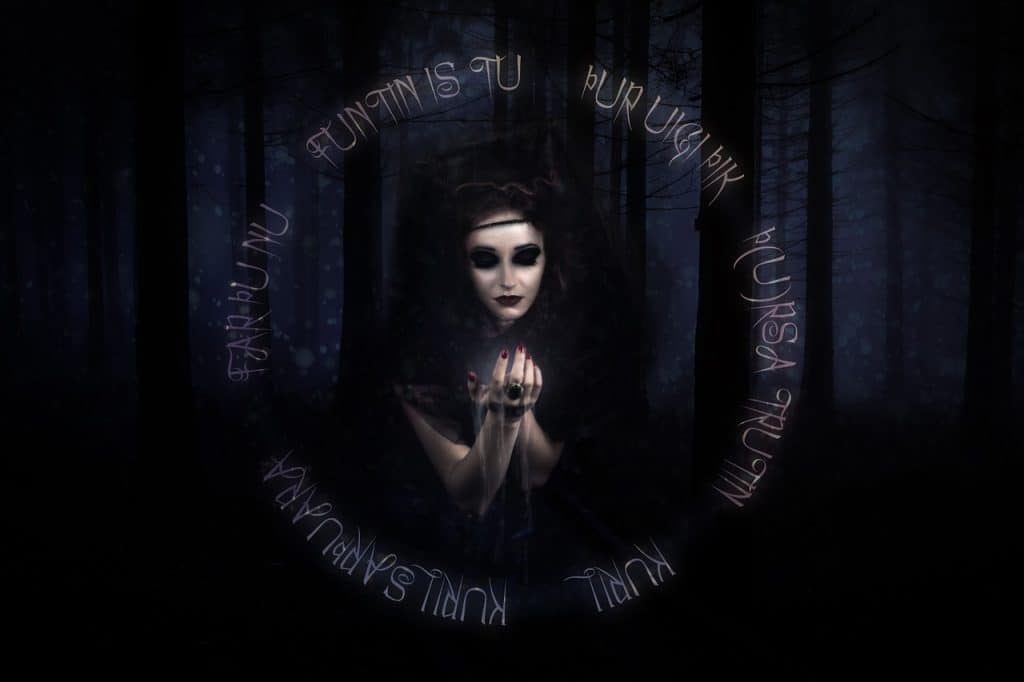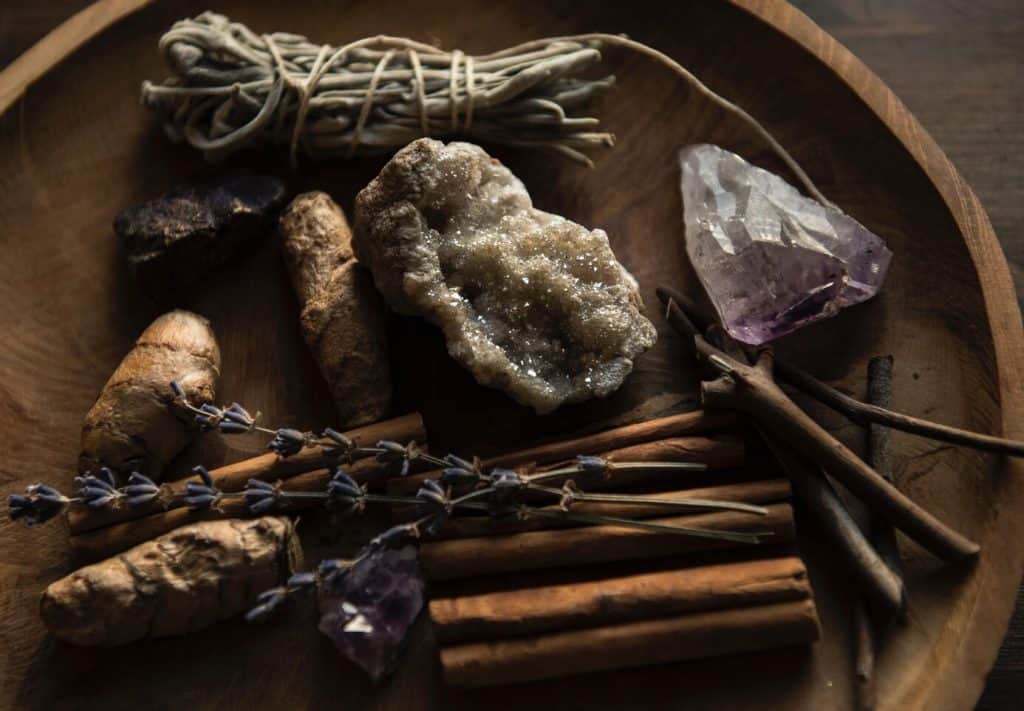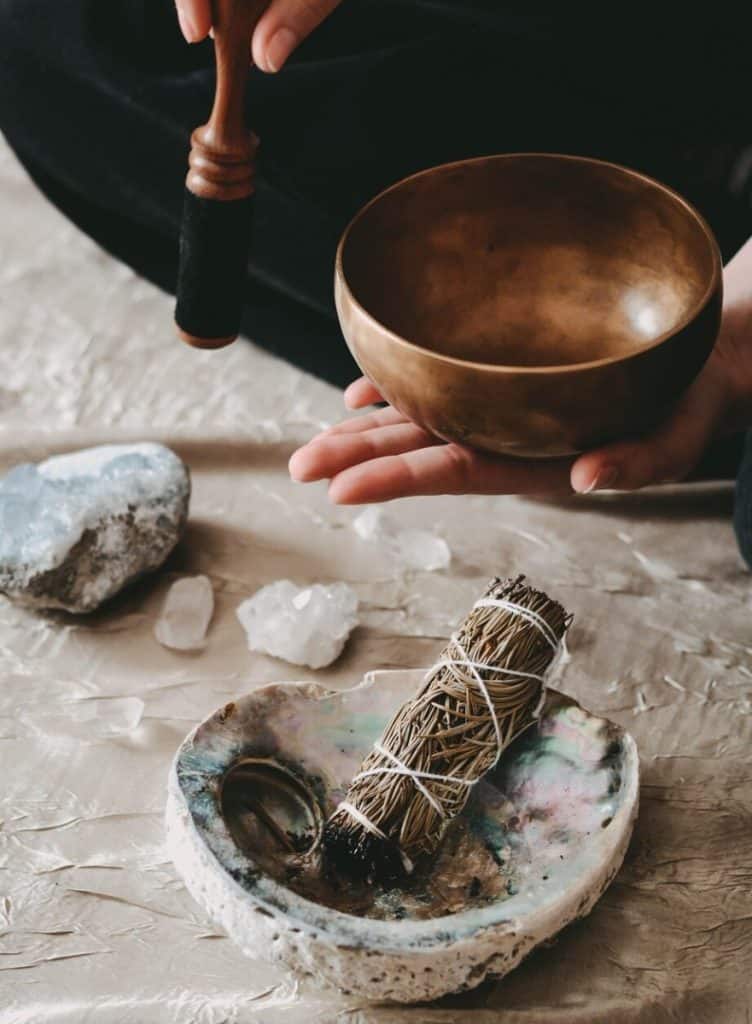The circle complete, the preparations properly setup, the bard takes an unusually somber moment before completing the learned ritual. He smiles at the party and nods as they put on weighted boots and walk into the sea, water breathing fully imbued into the group for the next 24 hours. The ranger draws up a spell he learned from a talkative wizard he once befriended in the Great Northern Woods, and read the spell from his book to quickly identify the strange magical carving before him.
Ritual casting might not be the star of the show during combat, but these are often some of the most important and useful utility spells in the game for an adventuring party to have access to.
Ritual caster is a 5E feat giving a player two first level ritual spells from a class of their choice in addition to providing the ability to learn all ritual spells of that class, and a ritual spell book from which to cast them. This feat does not have a prerequisite of spellcasting, meaning as long as your wisdom/intelligence is 13 or higher you can take it.
Let’s break down 5E’s ritual caster feat further and see how it holds up under close inspection!

Breaking Down the Ritual Caster Feat
Let’s take a look at the Ritual Caster feat as it is written in The Player’s Handbook and then break down the features of this feat point by point.
Directly from the Player’s Handbook:
Prerequisite: Intelligence or Wisdom score of 13 or higher
You have learned a number of spells you can cast as rituals. These spells are written in a ritual book, which you must have on hand when casting one of them.
When you gain this feat, choose one of the following classes: bard, cleric, druid, sorcerer, warlock, or wizard. You acquire a ritual book holding two 1st level spells with the ritual tag, which must be on the list of the chosen class. Your casting ability for these rituals is the same as the chosen class (Charisma for bard, sorcerer, or warlock; Wisdom for cleric or druid; Intelligence for wizard).
If you come across a spell in written form, such as a magical spell scroll or a wizard’s spellbook, you might be able to add it to your ritual book. The spell must be on the spell list for the class you chose, the spell’s level can be no higher than half your level (rounded up), and it must have the ritual tag. The process of copying the spell into your ritual book takes 2 hours per level of the spell, and costs 50 gp per level. The cost represents material components you expend as you experiment with the spell to master it, as well as the fine inks you need to record it.
Player’s Handbook, p. 169

Whew – that’s a long one! So let’s break down each benefit and each section in detail to see how this feat stacks up.
Benefit #1: Gain a ritual book and choose from the bard, cleric, druid, sorcerer, warlock, or wizard class. Your ritual book comes with two 1st level spells associated with that class.
This is a really great benefit that definitely provides both instant and long-term value. You can choose from the six full casting classes and whichever class you choose you also get to learn two first level ritual spells.
There are many very useful 1st-level ritual spells and if your party is short some magic casters, or you need to build a blaster caster then this utility is a powerful addition to any class that can be of HUGE benefit for any party.
At first the section forcing you to use the casting stat of the class you take the spells from can seem very restrictive…but is it really? I’d say no. Don’t forget that these are ritual spells which means you’re not casting them in battle or as part of an opposed check. So while choosing bard spells wouldn’t make sense for battle if your charisma is a 10, for a ritual spell list it might not matter at all.
Study each spell list and see if any of these ritual spells call for a check to spot any potential issue, but for the most part since these are ritual spells the casting stat doesn’t matter in these very specific narrow circumstances.
Benefit #2: Gain a ritual book.
This was mentioned in benefit one, but it is important enough to justify it’s own entry. A ritual book means you’re not limited to 1-2 spells like many other feats that revolve around additional magic use. Because of that ritual book, any spells you can learn (which are ALL ritual spells from the class you learned your first two from) can also be added to that book.
That can lead to you being able to cast an enormous number of ritual spells, which is this feat’s way of scaling.
Benefit #3: You can copy a written ritual spell from the spellcasting class you chose and afterwards cast as a ritual as long as you have your ritual tome on hand.
The cost is 50 gp per level for spell, which confirms that this feat allows you to learn higher level ritual spells. As long as you can acquire the spell and pay the gold, you can learn quite a few ritual spells this way.

5E Classes That Should Seriously Consider Taking the Ritual Caster Feat
While this can be a great feat for many of the classes in the game, and you can even make some pretty interesting builds for conventionally non-caster classes with this (and some other) feats, four main classes really stick out as always being top candidates for taking the ritual caster feat. The 5E classes that should always consider taking the ritual caster feat are bards, druids, paladins, and sorcerers.
Bards
One of the full casting classes, they already have access to a wide variety of spells and tend to play battlefield management, support casting, and utility casting but depending on the build they can also deal some serious damage and toss some heals around. In other words, bards tend to be busy.
Adding a large list of ritual spells from say, the Wizard, or the Cleric, allows bards to have even more utility outside of the battlefield and can be a great way to fully supplement their role as the “go-to for everything” caster.
Druids
They spend so much time in wild shape yet have a bevy of important spells that can help in a variety of situations. As many druids are played as meditative types, characters with a deep connection not only to nature but to themselves, the idea of magic that took time, focus, and meditation via ritual makes perfect sense from a roleplaying perspective.
Not to mention that the mechanics of it add more great utility spells to a caster who is likely very already important in filling that role.
Paladins
This might seem like a strange pick at first, but paladins serve their party as part of serving their oath, and many of the class features of a paladin buff, boost, or even heal to some degree. Ritual casting at camp or outside of combat fits into this perfectly while allowing them to still focus spells, stats, and other feats on combat.
Sorcerers
Sorcerers, the blaster casters whose class features allow them to magic even more…though their natural ritual spell list is sorely lacking. Sorcerers are a one stat class meaning they can focus more on enhancing magic, and getting access to ritual spells of Bards, Clerics, Druids, or Wizards is a really big deal.
This expands their ability to cast spells and take a support or utility role in the group without sacrificing the sheer firepower that many parties lean on their sorcerers for. This is an excellent way to play a sorcerer who doesn’t just rely on their blood but also wanted to study more about their gift and acquired additional spells through study.
5th Ed Classes that should always take the Ritual Caster Feat:
- Bards
- Druids
- Paladins
- Sorcerers
5E Classes That Should Consider Taking the Ritual Caster Feat
These are classes that don’t necessarily need to take the ritual caster feat, but it can make a lot of sense and these classes can definitely make use of the feat. The reasons for not necessarily taking these can range from being the one class that never has enough slots for everything they want to do (Cleric) to focusing on maxing out 2 or more stats to the many class-specific builds that are optimized to ability score improvements and other feats (Fey Touched + Sharpshooter is pretty great for the Ranger).
But this is an excellent feat that can work in extremely well with these classes if they want to go this direction with their build.
Clerics
Clerics are the class that can already do a lot of things, can use many different feats for a good build, and need multiple strong abilities. Which means there’s always far more needs than there is space. This is the biggest reason why, as tempting as the wizard’s ritual spell list might be, the cleric is only a consider instead of an always.
Clerics already have a very impressive spell list, and taking this feat can open up wizard ritual spells to make the cleric a terrifying potential combination of heavy damage, healing, and of course ritual-based utility casting.
The only reason the cleric isn’t in the “must take” group, because Clerics absolutely match up with the ritual caster feat so well, is because clerics are a class that needs 2-3 strong stats AND multiple feats AND there are multiple builds requiring both, and there are never enough slots to build a cleric in multiple directions.
But a Cleric that takes the ritual caster feat can do, as one friend at our gaming table likes to put it: “ALL the magics.”
Rangers
Rangers are a half-casting class that focus on distance damage dealing, but thematically the ritual caster feat works great, especially if you take the Druid spell list. This not only gives them more spells, the type that make sense when preparing for a long wild journey or coming down from camp, but it also allows them to focus on other Ranger spells since some of the tempting choices could now be cast as rituals.
This is a great blend of spells and roleplaying or story-wise makes sense as rangers are expected to be self-reliant, have plenty of alone time in the wilds, and already have some magic. Adding ritual casting to that makes a whole lot of sense, and while rangers are listed as a Dexterity-Wisdom combo, honestly they can go heavy Dexterity and be just okay in Wisdom and get by without issue based on their spell list.
That can be a win-win situation for a ranger who mainly still focuses on archery and damage dealing, and scouting/stealth, but wouldn’t mind adding a few more tricks to the repertoire.
Warlocks (non-Pact of the Tome)
Warlocks are built on invocations because they are so limited in spell choices and uses. So any trait that allows a warlock PC to use one level up to drastically increase their ability to use magic is a good feat. Pact of the Tome Warlocks already get this, and there’s a reason that was overwhelmingly the warlock class of choice prior to Hexblade showing up.
And you’re still a little more likely to run into a Pact of the Tome than a Hexblade, though they’re comparable. So giving warlocks who don’t have ritual casting abilities the ability to add a lot of ritual spells is huge.
Warlocks are interesting because the best builds often require multiple ability score increases, invocations, and feats. So adding another isn’t always an option but this can do amazing things to give warlocks more versatility, and open up spells that they otherwise wouldn’t have access to.
5th Ed Classes that should consider taking the Ritual Caster Feat:
- Clerics
- Rangers
- Warlocks (Not Pact of the Tome, who start with ritual casting already)
5E Classes That Should NEVER Take the Ritual Caster Feat
Basically two types of classes fall into the “Never Take” list for ritual casting.
There are the classes that already have ritual casting, such as:
- Artificer
- Warlocks who take Pact of the Tome
- Wizards
There is the argument that these classes could further augment their spellcasting with rituals from other classes, and there are some builds that merit that, however most of the time this is a rule of thumb that works well. Plus the wizards will have access to the overwhelming majority of spells that are listed among all the groups, taking some of the shine off of this feat for them.
Then there are classes that don’t often meet the prerequisites or need high ability scores and feats for other builds, such as:
- Barbarians
- Fighters
- Monks
- Rogues
These are classes well a few ritual spells don’t make sense or they aren’t likely to have the stats needed to even be able to take the feat.
One of the notable differences here is that while most “Never take this” class lists for the other feats we’ve reviewed are hard set in stone, this isn’t quite as set in stone. There are situations where maybe an artificer can expand their list or a fighter (especially Eldritch Fighter) uses one of their extra feats for this, or an Arcane Trickster Rogue wants even more versatility.
However, these are narrow situational builds and generally if you’re playing these classes you should be looking at other feats.
5th Ed classes that should never take the Ritual Caster Feat:
- Artificers
- Barbarians
- Fighters
- Monks
- Pact of the Tome Warlocks
- Rogues
- Wizards
Ritual Caster Is Dependent on the 5E Ritual Casting Spells
There are few feats tied so thoroughly to a limited number options as the ritual caster feat is to the number of ritual spells available or accessible during a campaign for a character to learn.
However, the good news is that while the idea of “Best” ritual spell can be subjective as there are specific situations where the perfect spell is just the perfect spell, but I’ve bolded some of the spells for each class that consistently tend to be extremely effective or helpful in most every campaign as a ritual spell – (so for example while silence is a great spell, it’s really impractical as a ritual in most cases, and therefore won’t be marked here even though it’s a great spell overall).
The wizard’s spell list is, unsurprisingly, the most powerful from top to bottom but if you don’t want to cast from the Intelligence stat or are looking for some crucial Bard, Cleric, or Druid spells they don’t have, those are great class options, as well.
Here are the list of spells that can be cast ritually by each class in 5th Edition.
Artificer Ritual Spells in 5E
- Alarm
- Detect Magic
- Identify
- Magic Mouth
- Skywrite (2nd Level)
- Water Breathing (3rd Level from here on down)
- Water Walk
Bard Ritual Spells in 5E
- Comprehend Languages
- Detect Magic
- Identify
- Illusory Script
- Speak with Animals
- Unseen Servant
- Animal Messenger (2nd Level from here on down)
- Locate Animals or Plants
- Magic Mouth
- Silence
- Skywrite
- Feign Death (3rd Level from here on down)
- Leomund’s Tiny Hut
- Tiny Hut
Cleric Ritual Spells in 5E
- Ceremony
- Detect Magic
- Detect Poison and Disease
- Purify Food and Drink
- Augury (2nd Level from here on down)
- Gentle Repose
- Silence
- Feign Death (3rd Level from here on down)
- Meld into Stone
- Water Walk
- Divination (4th Level Ritual Spell) – Can be an incredible spell, it depends on the DM
- Commune (5th Level Ritual Spell)
- Forbiddance (6th Level Ritual Spell)
Druid Ritual Spells in 5E
- Detect Magic
- Detect Poison and Disease
- Purify Food and Drink
- Speak with Animals
- Animal Messenger (2nd Level from here on down)
- Beast Sense
- Locate Animals or Plants
- Skywrite
- Feign Death (3rd Level from here on down)
- Meld into Stone
- Water Breathing
- Water Walk
- Commune with Nature (5th)
Sorcerer Ritual Spells in 5E
- Comprehend Languages
- Detect Magic
- Water Breathing (3rd level from here on down)
- Water Walk
Warlock Ritual Spells in 5E
- Comprehend Languages
- Illusory Script
- Unseen Servant
- Contact Other Plane (5th Level)
Wizard Ritual Spells in 5E
- Alarm
- Comprehend Languages
- Detect Magic
- Find Familiar
- Floating Disk
- Identify
- Illusory Script
- Tenser’s Floating Disk
- Unseen Servant
- Gentle Repose (2nd Level from here on down)
- Magic Mouth
- Skywrite
- Feign Death (3rd Level from here on down)
- Leomund’s Tiny Hut
- Phantom Steed
- Tiny Hut
- Water Breathing
- Contact Other Plane (5th Level from here on down)
- Rary’s Telepathic Bond
- Telepathic Bond
- Drawmij’s Instant Summons
- Instant Summons
As you can see, there is no shortage of really good ritual casting spells to pick from that each class has access to, and depending on what your party is made of you might not necessarily go straight for the wizard.
Maybe the Druid’s spells fill in the perfect gaps that the party doesn’t have in a wilderness heavy campaign, or picking the Bard’s list prevents all those nighttime ambushes your DM has delighted in throwing at the party.
Whatever the choice, the sheer variety of spells available in each group (which in theory your character could learn every single one of) creates powerful utility that’s used frequently, and still gives you the ability to pick up the spells that are perfect for those situations that might only come up once a campaign, but man you are glad to have that spell when it’s finally helpful!

Final Feat Grade for 5E Ritual Caster
Ritual Caster Feat Grade: A
Is the 5E Ritual Caster Feat Worth It?
Ritual caster is actually a feat that is underrated by beginning players, and a “must have” for many experienced players with the right class. This is an exceptional feat that might not have the flash or pizazz of some of the others but it is incredibly useful. There are many very powerful ritual spells that bring serious utility during the course of a campaign.
Ritual Caster Feat FAQ
Can non-caster classes use the ritual caster feat?
Yes. Prior ability to cast spells is not a prerequisite, though because this goes into a gray area the DM might have to dictate how the magic casting “levels up” for a non-casting character since it’s not as explicitly laid out. However, the easy solution is to make the character who takes the feat level up their ability to cast these ritual spells based on whichever class they choose.
Can rangers cast rituals in 5E?
Rangers can not ritually cast spells in 5th edition unless they specifically take the ritual caster feat.
Can paladins do ritual casting in 5E DnD?
Paladins do not have ritual casting and therefor can not ritually cast spells in 5th edition unless they spend an ability score improvement taking the ritual caster feat instead.
Is ritual caster a good feat?
Ritual caster is one of the best magic-based feats in 5th Edition D&D. This opens up an enormous amount of spells for most classes, and there are many incredibly powerful ritual spells that can really buffer a player character’s spellcasting ability.
Can you take ritual caster feat twice?
No, so pick the class whose ritual spells you’re most interested in because that’s the list you will need to focus in on. Since you have a ritual book, you can learn all other ritual spells for that class as long as you can acquire a written copy (scroll or some DMs will allow teaching from another party member with the spell in written form).
Other DnD Articles You Might Enjoy
- 5E Resilient Feat
- 5E Mage Slayer
- Eldritch Adept 5E
- Magic Initiate 5E
- Metamagic Adept 5E
- Mounted Combatant Feat 5E

Proud to embrace the locally created moniker of “Corrupt Overlord” from one of the all time great Lords of Waterdeep runs, Shane is one member of the Assorted Meeples crew and will be hard at work creating awesome content for the website. He is a long-time player of board games, one time semi-professional poker player, and tends to run to the quirky or RPG side of things when it comes to playing video games. He loves tabletop roleplaying systems like Dungeons & Dragons, Pathfinder, Werewolf, Fate, and others, and not only has been a player but has run games as DM for years. You can find his other work in publications like Level Skip or Hobby Lark.
